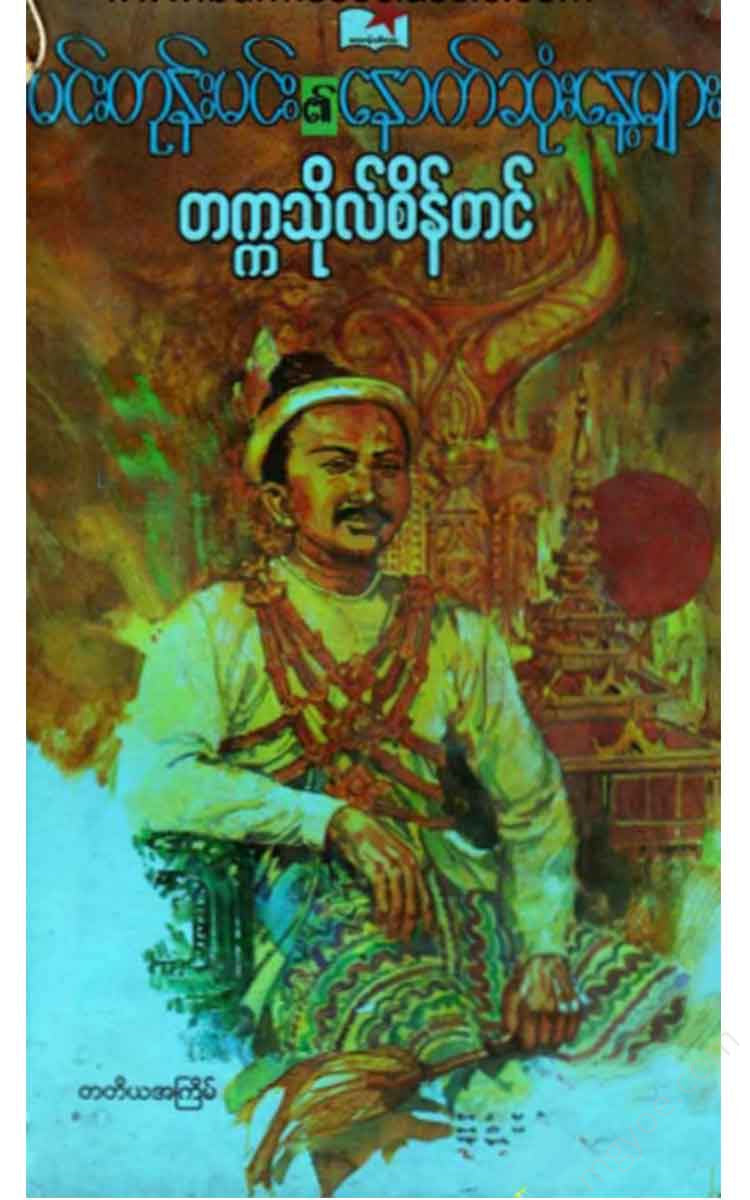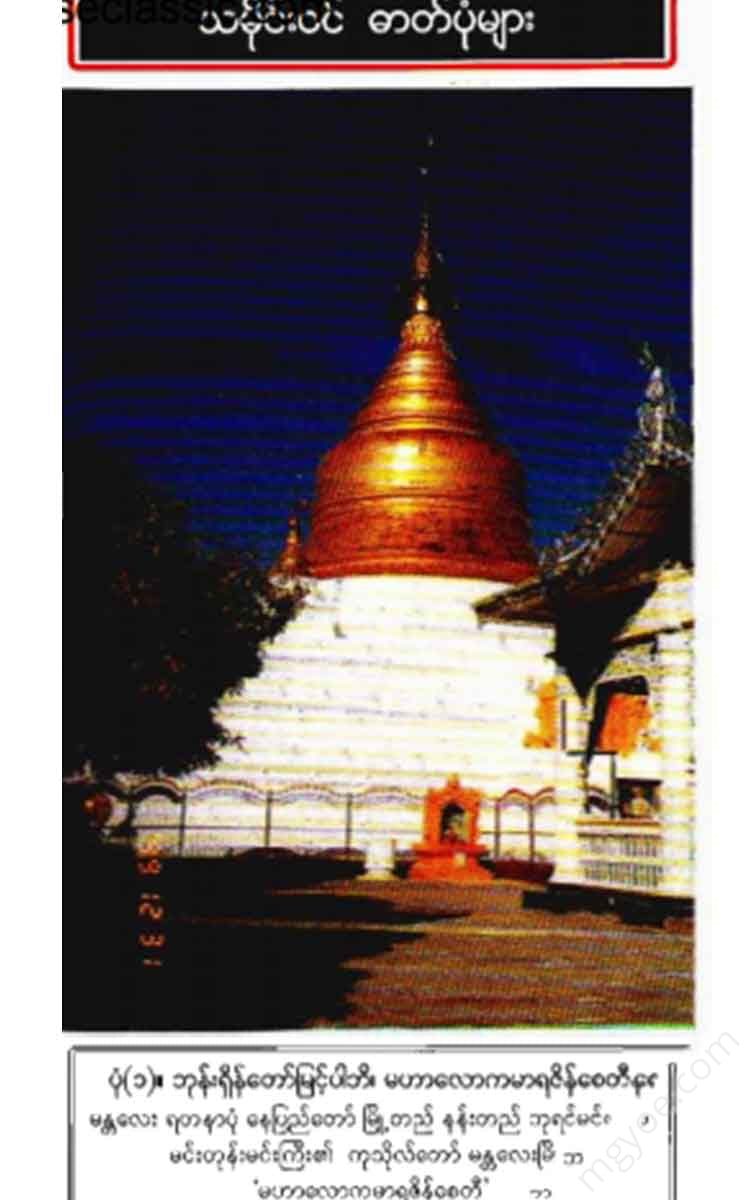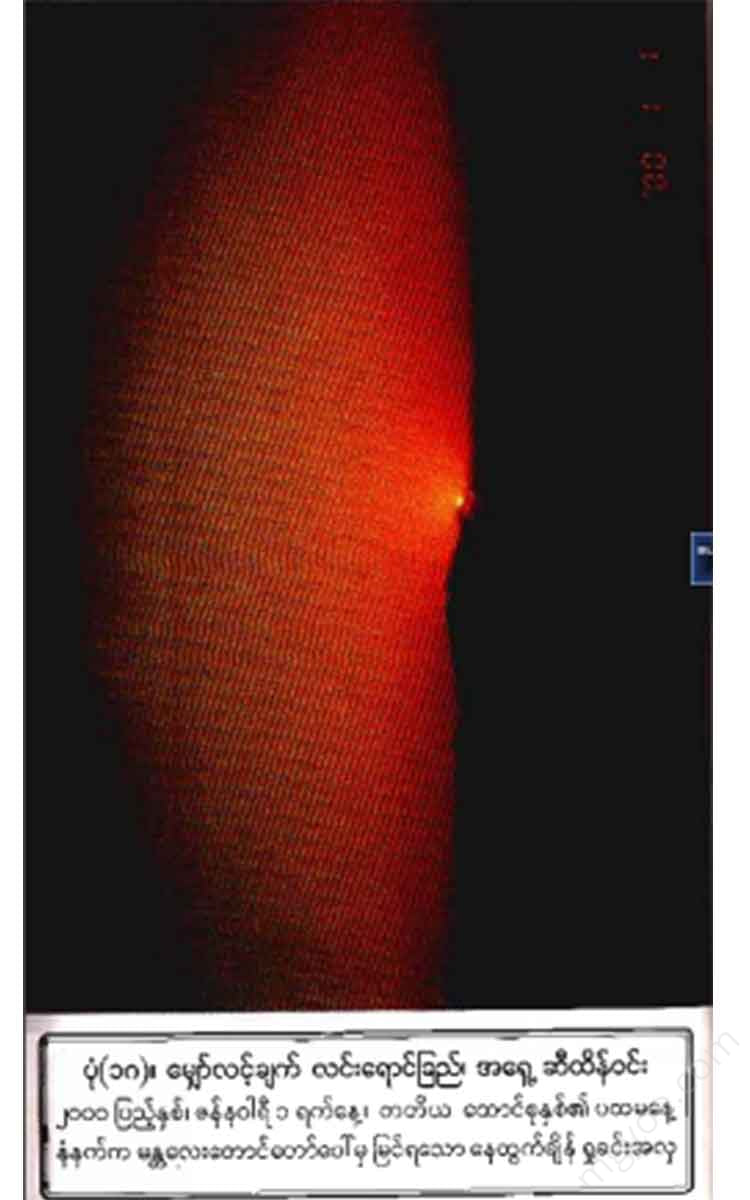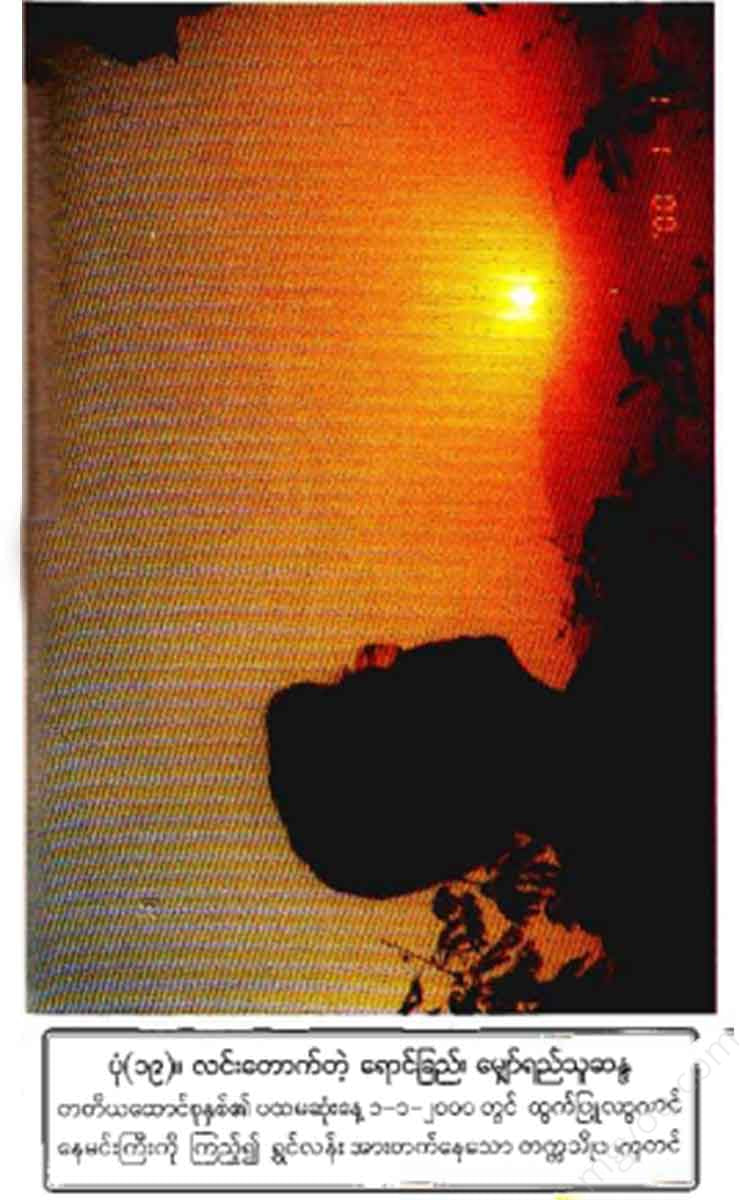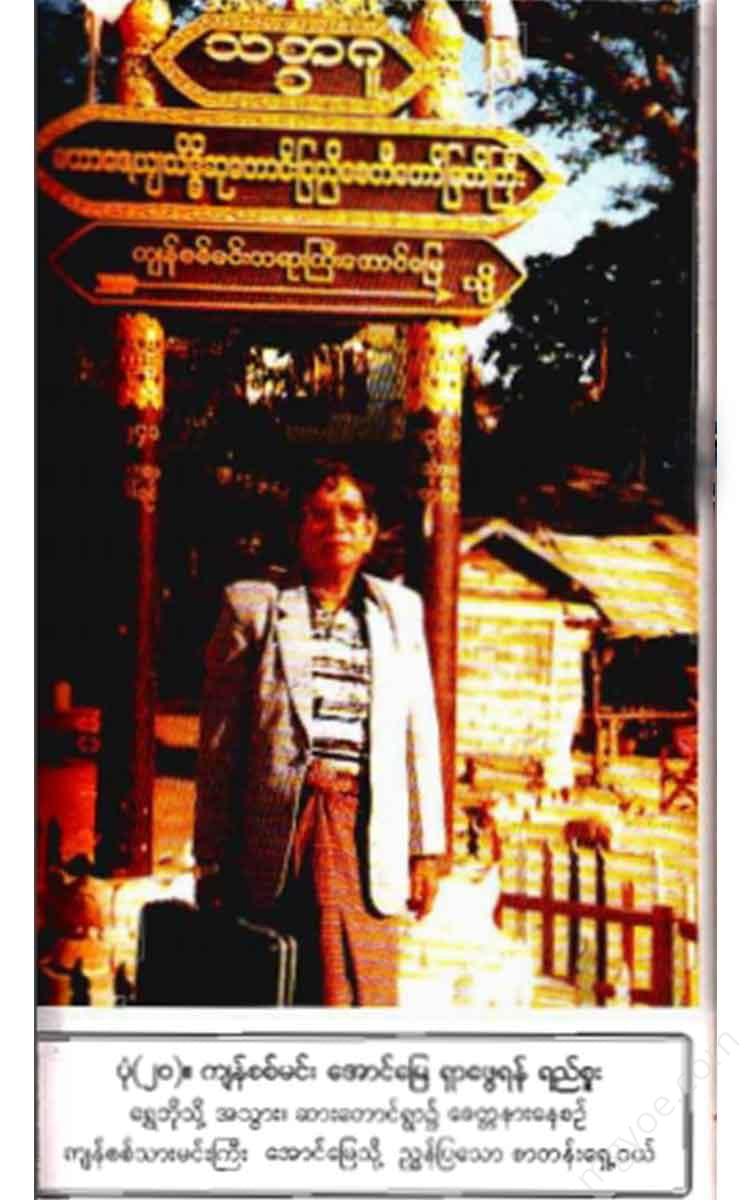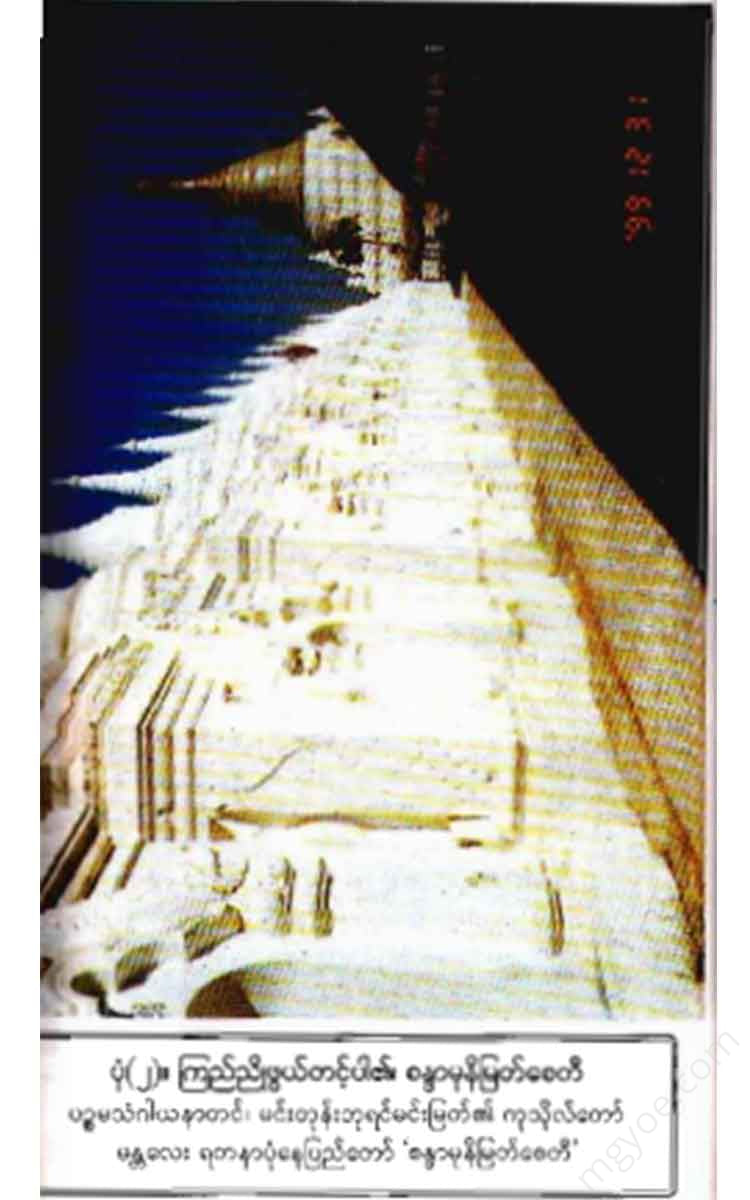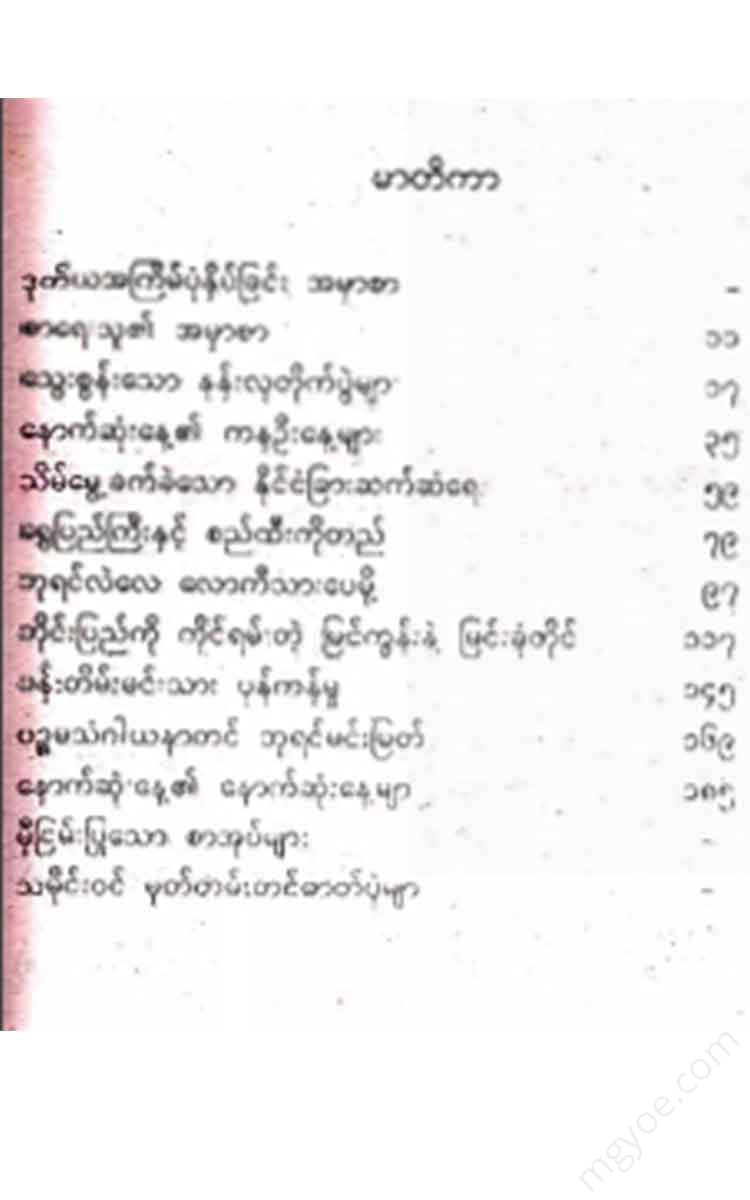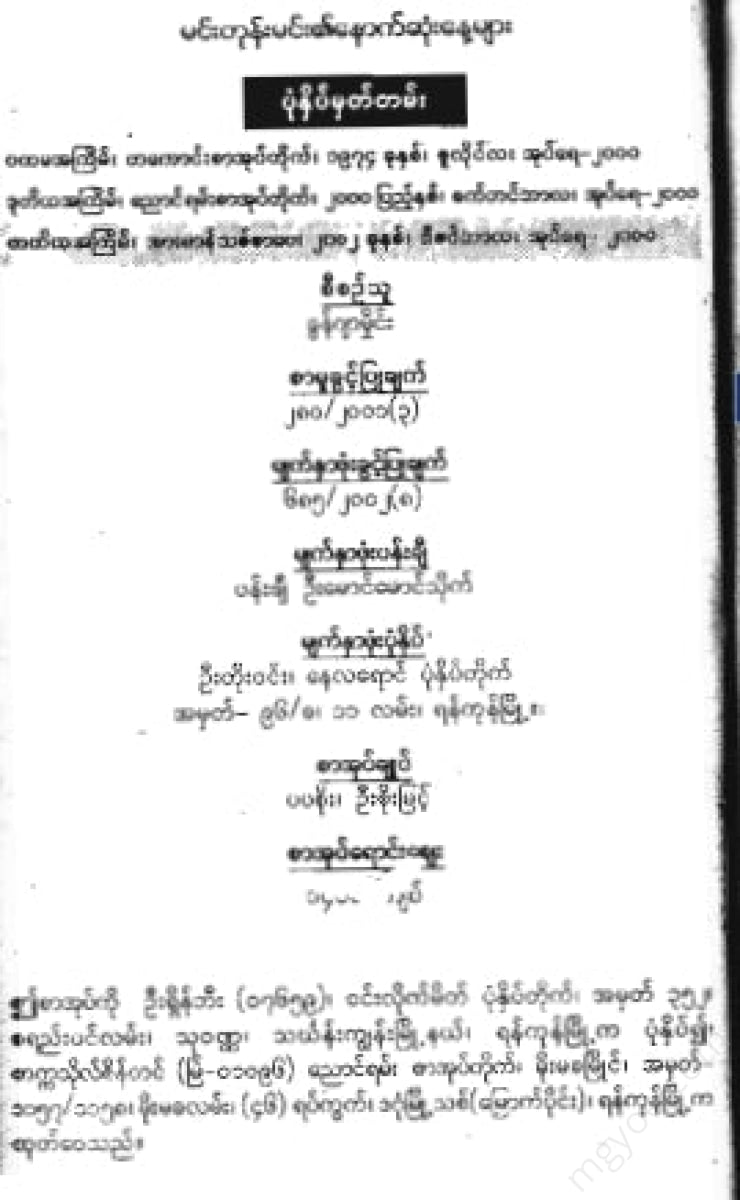Other Websites
University Diamond - The Last Days of King Mindon
University Diamond - The Last Days of King Mindon
Couldn't load pickup availability
:: Click on Buy it now to download the ebook . After placing your free order, the download link will be sent to the reader's email address used to log in to the mgyoe.com website.
:: The Ebook (Free) books on mgyoe.com are only books that have been circulating on the internet for a long time.
:: It is just a compilation so that readers can easily find it when they want to read it.
:: If reprinted by bookstores, the download links for these e-books will be removed.
------------------------------------
Bloody royal battles
The situation in the kingdom of Marapura is very bad.
The king's administration is in chaos. The officials are corrupt. Bribery is evil and evil. They are the ones who make money. There is a saying, "Don't break the bank." However, in reality, the poor, the common people, the merchants, the farmers, and the craftsmen are in a state of economic hardship, suffering, and want, and they say, "I think that's all it takes."
The situation when King Bagan came to power was not bad at all. Many Han Chinese people expected that King Bagan would be more prosperous than the previous king, King Thantharwady. However, “expectations and results” turned out to be different. King Bagan also established religion. When he wore a cloth, he would be dirty.
Soon after the accession of the Bagan King, some rebellions broke out in various parts of the country. Then, the governor of Amarapura, Baisab, and the duke of Maung Pein, began to abuse their power in Nay Pyi Taw. The ministers also held meetings with their minions. The people were oppressed and tortured by Baisab and Maung Pein. They could not even trade peacefully. They did not know who to blame for the destruction of the young women, so they wiped their tears on their knees. In this period of fear of the approaching sword, they bowed their heads, closed their eyes, and kept their mouths shut.
During that period, the British colonial government violently annexed part of Burma.
The reason for this war, which should be called the "Second Anglo-Burmese War," is not known. It is no different from a young lamb in front of a wolf who is trying to find fault and is being eaten by it, saying, "It will be your grandfather or not."
The British army invaded and occupied Burma on the pretext of a minor matter. The country was in a state of panic. The forest was on fire, and the wild cats were running wild. Thieves and rapists were also in a camp. The people had no money to pay, and there was no place to run. Historians describe Bagan Min, who conquered the Amarapura Kingdom for the fourth time and ascended the throne, as a kind-hearted man. Min was described by historians as a man who was kind to the people like a son, who repeatedly maintained the moral code, who did not want war, and who cherished the prosperity of the country. Now, is it enough for a ruler of a country to have a kind-hearted man? Is it enough to be kind to the people? Should we say that he is a good king just because he does not want war and wants the country to be peaceful?
There are questions to ask.
The Bagan King is indeed a pure and holy man. However, instead of taking an interest in the affairs of the state,
He was very serious about the fun side. When the time came to discuss the problems of the people, His Majesty the King of the Sundanese Kingdom, the Great King of the Kingdom of Thailand, was fighting cocks. How could the King, who was addicted to gambling, protect himself from the danger of the British colonial army that had invaded a part of Burma? The British government had been waiting for a good opportunity to create trouble in the border areas of Burma, and the wolf that would eat the lamb had been looking for a reason, whether it was valid or not. It was not difficult to find a reason. In Yangon, where foreigners were coming and going, a person like the mayor could solve the problem by simply provoking him.
British-owned merchant ships and warships were constantly entering and leaving Yangon, the capital of the Burmese monarchy. They were buying and selling goods, exploring the local situation, and gathering as much secret information as they could.
At that time, English merchants and soldiers were violating the laws and regulations of the Burmese government while entering and leaving Rangoon. Thus, British government officials, merchants, and Burmese royal officials clashed. The guilty citizens were punished according to the law. The English people protested the orders issued by the Burmese officials. The Burmese government oppressed them and gave various reasons for this. They filed charges.
Through this, they began to make demands that the Burmese government could not accommodate. When the Burmese government rejected their demands, they issued various ultimatums and then resorted to armed struggle.
The Burmese were faced with an unprepared war, and the British forces, advancing steadily, were unable to withstand the advance of the British. Yangon soon fell to the enemy. Pathein also fell. The British troops advanced with great speed, firing arrows at the towns of Pyay, Thayet, and Myat Me. The Burmese troops were forced to retreat at a rapid pace.
The country's situation is in a state of chaos and despair.
In this situation, a robbery attempt to seize the Golden Palace of Amarapura occurred in the capital.
The robbery is a fire that will rise to the top of the palace and burn. For the Bagan king, bad karma has come with all his companions, drums and pots, and a full house.
In fact, while British troops were occupying part of Burma, a robbery attempt to seize the throne occurred, which was like a candle being lit while the world was burning.
It was in December 1852.
Bad news has emerged regarding the failure to purchase Amarapura from Nay Pyi Taw.
Armed men broke into the house of “Dae Ye” who lives in a small village in the western part of Nay Pyi Taw at around 2 am. The robbers stole all the valuables from the house. This act was a crime against humanity. It was no different from burning down a temple.
